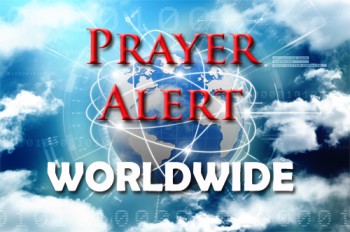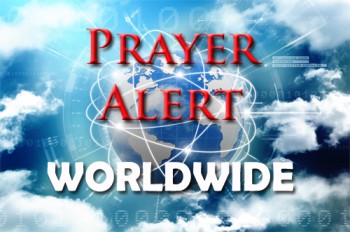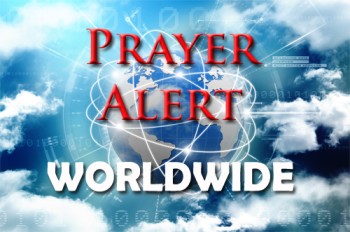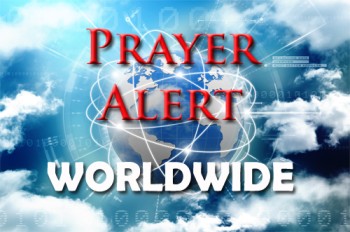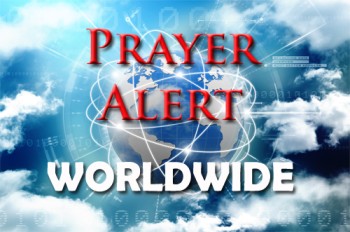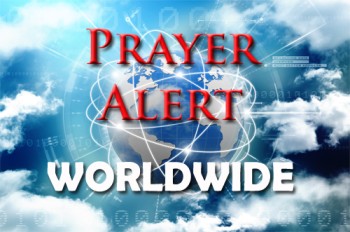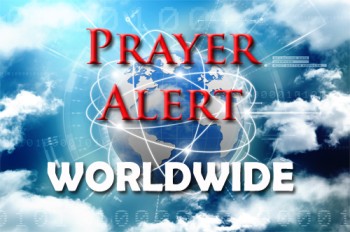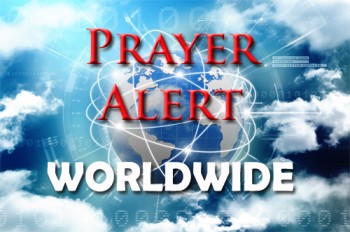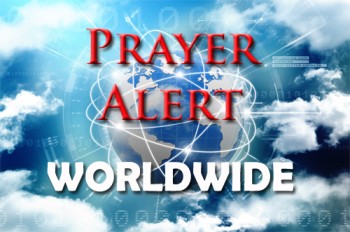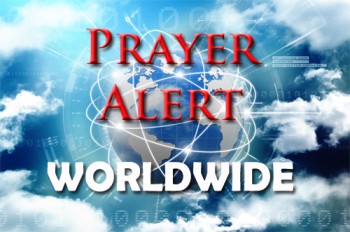Displaying items by tag: Sudan
Sudan: Yvette Cooper accuses the international community of failing vulnerable women
UK foreign secretary Yvette Cooper has warned that the world is ‘looking away’ from the humanitarian catastrophe unfolding in Sudan, urging global action to protect women and children. Visiting the Sudan–Chad border, she said the international community was failing Sudanese women, many of whom have suffered sexual violence since fighting erupted in 2023 between the army and the RSF. At the overcrowded refugee camp in Adré, most arrivals were women and children who had fled extreme brutality. More than twelve million people have been displaced, with millions crossing borders in search of safety. The UK has pledged new funding to support survivors, alongside partners including War Child, represented on the visit by Carey Mulligan. Calls are growing for stronger international pressure to end violence, halt the flow of arms, and pursue accountability. Meanwhile, the army claims to have broken through a blockade by RSF of the important town of Kadugli: see
Sudan: former Janjaweed commander sentenced by ICC for Darfur war crimes
The International Criminal Court (ICC) has sentenced former Janjaweed commander Ali Muhammad Ali Abd-Al-Rahman, better known as Ali Kushayb, to twenty years in prison for war crimes and crimes against humanity committed in Darfur in 2003–04. Convicted on 27 charges, he is the first person tried by the ICC for atrocities linked to the Darfur conflict. Judges found that he both ordered and personally participated in attacks aimed at ‘wiping out’ non-Arab communities, including killings, mass displacement and widespread sexual violence. Survivors testified to villages being burned and families destroyed. The ruling comes as Sudan faces renewed conflict, with the Rapid Support Forces (successors to the Janjaweed) accused of carrying out similar abuses today. While the ICC hopes the sentence will offer justice and deterrence, experts question its immediate impact, noting that millions of survivors remain displaced and key figures, including former president Omar al-Bashir, are still wanted. The verdict nevertheless stands as a significant acknowledgment of long-ignored suffering.
Sudan: RSF announces humanitarian truce after army rejects ceasefire proposals
The devastating civil war in Sudan continues, with renewed international pressure for a ceasefire. The RSF, locked in conflict with the army since April 2023, has announced a three-month humanitarian truce. It says the move is in response to global diplomatic efforts, including initiatives from the Quad mediators (the USA, Saudi Arabia, the UAE, and Egypt). However, deep distrust remains. Army chief Abdel Fattah al-Burhan rejected the US-backed proposal, calling it biased due to the UAE’s involvement and accusing the mediators of favouring the RSF. There are persistent allegations that the UAE is secretly arming the RSF, though it denies the claims. The conflict’s political roots remain unresolved: proposals have suggested transitions toward civilian rule without either military faction holding power - an idea the army has strongly opposed. In October the RSF seized the key Darfur city of El-Fasher after a relentless siege which sparked warnings of crimes against humanity and genocide. The warring parties have so far violated every ceasefire agreement.
Sudan: at least forty dead in a week in worst cholera outbreak in years
Doctors Without Borders (MSF) says that Sudan’s Darfur region is facing its worst cholera outbreak in years, with at least forty deaths reported in the past week and more than 2,470 deaths nationwide since August 2024. The crisis has been caused by the two-year war between Sudan’s army and the paramilitary RSP, which has displaced millions and severely restricted access to clean water. In Tawila, 380,000 displaced people survive on an average of only three litres of water a day - less than half the emergency minimum. Contaminated sources, damaged sanitation systems, and mass displacement have accelerated the disease’s spread, which now reaches beyond Sudan into Chad and South Sudan. MSF’s head of mission has warned that heavy rains are worsening conditions: he said, ‘Survivors of war must not be left to die from a preventable disease.’ Without urgent humanitarian intervention, the outbreak threatens to spiral further, endangering countless lives in an already devastated region.
Sudan: devastating attack on hospital
A brutal attack on Al Mujlad Hospital in West Kordofan has left over forty dead, including children and medical staff, in one of the deadliest assaults on a medical facility since the war began in April 2023. WHO chief Dr Tedros Ghebreyesus condemned the attack as ‘appalling’; it is not yet clear whether the army or the RSF was responsible. The fighting between the two sides has deepened a crisis which has left millions displaced and malnourished. Al Mujlad was the area’s only functioning hospital, and its loss intensifies the plight of communities already grappling with disease, famine, and displacement. Humanitarian organisations have warned that children bear the greatest toll, with rising malnutrition and exposure to exploitation. As Sudan’s war enters its third year, the call from global health leaders is clear: the targeting of hospitals and health workers must end immediately to prevent further humanitarian catastrophe.
Sudan: new wave of refugees pour into Chad after RSF atrocities
Over 18,500 Sudanese refugees have fled into eastern Chad in the past two weeks, following devastating attacks on the Zamzam displacement camp and the city of al-Fasher in Darfur. The 11 April assault by Sudan’s paramilitary Rapid Support Forces (RSF) left at least 400 dead in Zamzam after months of starvation and siege. Eyewitnesses report widespread atrocities including executions, torture, and sexual violence. The RSF destroyed the camp’s only medical centre, killing nine aid workers, and burned large sections of the camp. Once home to 500,000 people, Zamzam is now nearly abandoned. Many fleeing refugees, including children and pregnant women, are severely malnourished and traumatised. Chad, already hosting 1.3 million refugees - nearly 800,000 from Sudan - is overwhelmed and struggling to provide adequate shelter, food, and medical care. UNHCR officials, fearing more suffering ahead as the humanitarian situation deteriorates rapidly, are calling for urgent international assistance and intervention.
Sudan: Khartoum after army retakes control
Khartoum, once Sudan’s bustling capital, now lies gutted after months of brutal conflict. The army’s recent victory over the paramilitary RSF is a turning point in a two-year civil war that has claimed at least 150,000 lives. Though the RSF’s grip on Khartoum has ended, uncertainty remains about what lies ahead. The city bears deep scars: the presidential palace, once a powerful symbol, has been looted and bombed, its grandeur reduced to rubble. Banks, ministries, and the airport are charred remnants. Yet amid the destruction, remnants of faith endure. At St Matthew’s Cathedral, damaged by nearby shelling and desecrated by RSF forces, the beautiful painted ceiling has survived. One soldier cleaning inside said his son was born on the first day of the war, but he still hasn’t met him. Despite atrocities committed by both sides and ongoing violence elsewhere, people in Khartoum rejoiced during Eid, briefly reclaiming hope in a city that has seen the heart of Sudan torn open.
Sudan: satellite images show use of advanced weaponry in civil war
Satellite images have revealed drone activity at Sudan’s Nyala airport, an RSF stronghold in South Darfur. These developments highlight the continued influx of advanced weaponry fuelling Sudan’s brutal conflict. The RSF, engaged in a power struggle with Sudan’s army since April 2023, has used Nyala as a base for its offensive on al-Fashir and attacks on civilians in the famine-stricken Zamzam camp. Analysis suggests the RSF is using Chinese-made CH-95 drones; the Sudanese army has accused the UAE of supplying them. Both factions have used drones in airstrikes, causing widespread destruction. Despite a UN arms embargo, foreign weapons continue to flow into the region, worsening the humanitarian crisis. Meanwhile, many relief organisations are withdrawing from the country, and up to 80% of the emergency food kitchens are closing. See
Sudan: shelling kills at least 120
On 13 January at least 120 people were killed by indiscriminate shelling in Omdurman, with the death toll expected to rise. Sudan's civil war, between the army and the paramilitary RSF, began 21 months ago. It has claimed tens of thousands of lives, displaced over twelve million, and left the country on the brink of famine, described by the UN as a humanitarian disaster. Both sides have been accused of indiscriminately targeting civilians, including health workers, as fighting devastates Omdurman and neighbouring areas. Volunteers face severe challenges in accessing affected regions, and medical supplies are critically low. Recent weeks have seen the army intensify efforts to reclaim territory, seizing areas and confiscating weapons, while the RSF counterattacks. The recent skirmishes have forced emergency response rooms, which support local communities, to shut several health centres, affecting provision of medical services to thousands of residents.
Sudan: UN calls on countries to stop supplying weapons
The UN’s political affairs chief Rosemary DiCarlo has condemned the continuing flow of weapons to the conflict in Sudan, urging an immediate halt to external military support. Both the army and the paramilitary RSF are escalating their operations and recruiting new fighters, fuelled by substantial foreign backing. She said that this external support is prolonging the conflict and worsening the humanitarian crisis, which has so far claimed over 24,000 lives and displaced 11 million people. The civil war, ignited in April 2023 by a power struggle between two rival leaders, has led to widespread atrocities, with both sides accused of war crimes, including ethnic cleansing. Despite calls for an immediate ceasefire and negotiations, both sides remain entrenched, partly due to the continued influx of arms. The UN Security Council is discussing a resolution which urges the warring parties to allow unhindered humanitarian aid deliveries, as more than half of the country’s population of 50 million faces severe food shortages.
